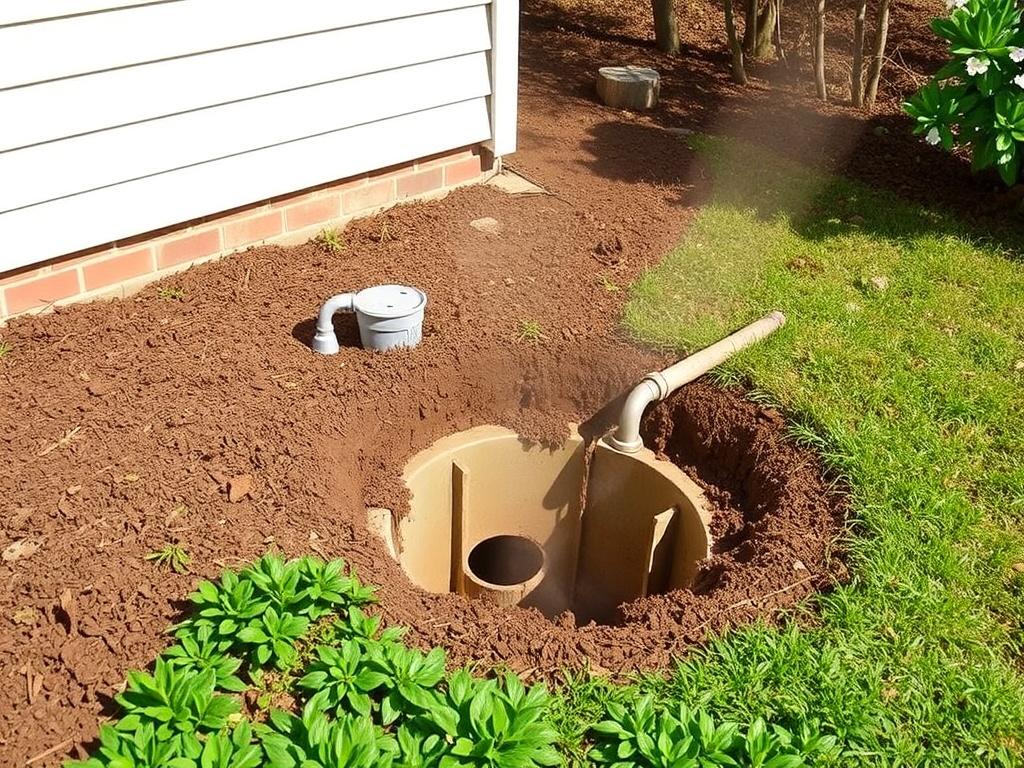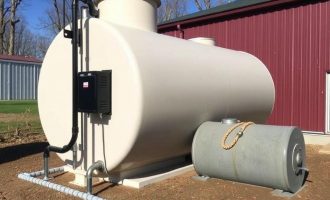Septic tank odors can be an unpleasant and persistent problem for many homeowners. If you’ve ever walked near a septic system and been greeted by a strong, unpleasant smell, you know how frustrating it can be. Fortunately, there are effective ways to reduce septic tank smell and keep your home environment fresh and odor-free. Whether you’re dealing with occasional whiffs or a constant nuisance, understanding why these smells occur and how to address them will make a significant difference.
In this article, we will explore how to reduce septic tank smell using simple maintenance tips, natural treatments, and best practices to ensure your septic system functions efficiently without causing discomfort around your home. We’ll dive into why your septic tank might smell in the first place, common causes, and practical solutions.
- Understanding Why Septic Tanks Smell
- Common Causes of Septic Tank Smell
- Practical Tips on How to Reduce Septic Tank Smell
- Regular Tank Pumping and Inspection
- Maintain Proper Ventilation
- Use Natural Odor Neutralizers
- Avoid Harsh Chemicals and Excessive Water Use
- Fix Leaks and Seal Any Openings
- Long-Term Solutions and Professional Help
- Septic Tank Replacement or Repair
- Drain Field Repair or Replacement
- Install Advanced Vent Filters
- Ongoing Septic System Maintenance Plan
- Additional Tips to Reduce Septic Tank Smell Around Your Property
- Using Household Habits to Prevent Odors
- Summary Table: Quick Checklist to Reduce Septic Tank Smell
- Conclusion
Understanding Why Septic Tanks Smell
One of the first steps in solving any problem is understanding its cause. Septic tanks smell because they contain decomposing organic waste, which produces gases like methane, hydrogen sulfide, and ammonia. These gases can escape from the tank or vent pipes, resulting in foul odors that can spread across your yard or even inside your home.
The natural process of waste breaking down produces these gasses, but when your septic system is working correctly, the smell should be minimal or absent. So, if you notice a strong septic tank smell, it often indicates an issue that needs attention. Problems like clogged vent pipes, a full or failing septic tank, poor drainage, or leaky pipes can all contribute to the smell escaping.
Common Causes of Septic Tank Smell
It is important to identify the root cause of the odor to effectively reduce septic tank smell. Here are some common reasons why septic tanks smell:
- Full or Overfilled Tank: When a septic tank isn’t pumped regularly, solid waste accumulates, and the tank can overflow, leading to unpleasant odors.
- Clogged or Blocked Vent Pipes: Septic systems rely on venting to release gases safely outside the home. Blockages in vent pipes can cause smells to back up.
- Leaking or Damaged Seals: If the tank lid or access points aren’t sealed properly, gas can escape.
- Poor Drainage or Saturated Soil: Excess water saturating the drain field may cause waste to stall, producing odors.
- Introduction of Harsh Chemicals: Using harsh household cleansers or chemicals can disrupt the natural bacterial balance inside your septic tank, increasing odor issues.
Practical Tips on How to Reduce Septic Tank Smell
Knowing the causes is only half the battle. The good news is there are many practical and easy solutions you can apply to cut down on septic tank smell. Proper maintenance and some simple DIY fixes can keep your system running smoothly and odor-free.
Regular Tank Pumping and Inspection
The most critical maintenance step to reduce septic tank smell is ensuring your tank is pumped on schedule. For most households, this means pumping every 3 to 5 years, though it may vary depending on the tank size, household size, and water usage.
Regular pumping:
- Prevents solids from overflowing into the drain field, which can cause smell and damage.
- Removes excess sludge that produces intense gases.
- Keeps your septic system balanced and functioning well.
Along with pumping, routine inspections help catch minor issues like cracked lids or vent problems early before they produce odors.
Maintain Proper Ventilation
Septic systems rely heavily on proper ventilation to direct gases safely outside. If vents are blocked by debris or plant growth, foul odors can back up into your home.
To ensure good ventilation:
- Keep the septic tank vent pipes clear of leaves, nests, or other blockages.
- Trim plants or bushes growing near or on vent pipes.
- Check the vent openings periodically, especially after storms or windy weather.
If you suspect a ventilation problem but aren’t sure how to fix it, consider consulting a professional septic service.
Use Natural Odor Neutralizers
One of the easiest ways to reduce septic tank smell without harsh chemicals is to use natural odor neutralizers. These products help balance the septic system’s bacteria and absorb smells naturally.
Here are some commonly used natural odor neutralizers:
| Natural Treatment | How it Works | Application Tips |
|---|---|---|
| Baking Soda | Neutralizes acidic odors and balances pH. | Sprinkle around vent openings or flush small amounts down drains weekly. |
| Vinegar | Helps break down organic build-up and reduce smells. | Add 1-2 cups down drains once a month. |
| Enzyme Treatments | Encourages beneficial bacteria to break down waste and odors. | Use as directed—typically monthly dosing in septic tank or drains. |
| Lemon Juice | Natural freshener and odor neutralizer. | Flush diluted lemon juice down sinks or toilets; avoid overuse. |
Avoid Harsh Chemicals and Excessive Water Use
It’s natural to think using strong cleaners will help clean the septic system, but the opposite is often true. Harsh chemicals like bleach, ammonia, and antibacterial soaps can kill the beneficial bacteria in your tank that decompose waste. Without these bacteria, waste builds up faster and smells intensify.
To protect your septic system:
- Use septic-safe and biodegradable cleaners only.
- Limit bleach and disinfectant use to moderate amounts.
- Avoid flushing large quantities of water at once; spread out laundry loads and dishwashing.
Reducing water flow stress on your system helps it process waste efficiently, preventing odor issues.
Fix Leaks and Seal Any Openings
Sometimes septic tank smell results from leaks or poor seals. Inspect your septic tank’s access lids and risers for cracks or open joints, and make sure they are tightly sealed. A cracked lid or loose seal allows gases to escape near your home rather than the appropriate venting system.
If you notice leaks, broken pipes, or damaged covers, it’s important to address these immediately. Not only do they cause smell problems, but they can also lead to health hazards and environmental contamination.
Long-Term Solutions and Professional Help

For persistent septic tank smell issues, sometimes simple home remedies won’t be enough, and professional help is needed. Here are some long-term solutions that may require expert assistance:
Septic Tank Replacement or Repair
An old or damaged septic tank may need repair or replacement to solve chronic odor problems. Cracks or structural damage inside the tank can allow gases to escape unpredictably, causing strong smells.
Drain Field Repair or Replacement
If your drain field is saturated or failing, wastewater cannot disperse properly, and odors pool near the surface. Repairing or replacing the drain field restores proper function and eliminates smells.
Install Advanced Vent Filters
For homes with sensitive proximity or odor issues, specialized vent filters designed to absorb and neutralize gases can be installed. These filters reduce airborne odor release significantly.
Ongoing Septic System Maintenance Plan
Establishing a regular maintenance plan with a professional septic service is essential to keeping odors at bay long-term. Professionals can perform detailed inspections, treat septic bacteria appropriately, and prevent costly repairs before they start.
Additional Tips to Reduce Septic Tank Smell Around Your Property

Aside from internal septic system fixes, here are a few extra tips you can use outdoors to reduce septic tank smell:
- Landscaping: Plant grass or odor-absorbing plants like cattails around the septic area to help mask smells and absorb moisture.
- Keep the Area Clean: Remove debris, leaves, or standing water near your septic tank to reduce smell collection and mosquito breeding.
- Avoid Parking or Building on the Tank: Heavy machinery or construction over the septic area can damage components, causing leaks and smells.
Using Household Habits to Prevent Odors
Your everyday routine can also influence septic tank smell:
- Dispose of grease and fats properly: Avoid pouring cooking grease down your drains; it can clog pipes and trap odors.
- Use toilets and sinks mindfully: Don’t flush or pour non-degradable items like wipes, diapers, or harsh substances into your system.
- Run water regularly: Even when away, have someone run taps to keep the system’s water balanced and prevent traps drying out, which allows odors inside.
Summary Table: Quick Checklist to Reduce Septic Tank Smell
| Action | Why It Helps | Frequency |
|---|---|---|
| Schedule septic tank pumping | Removes waste buildup and odors | Every 3-5 years (or as recommended) |
| Clear and inspect vent pipes | Allows gases to escape properly | Annually or when odors noticed |
| Use natural odor neutralizers | Balances bacteria and masks smells | Monthly or as needed |
| Seal lids and fix leaks | Prevents gas leakage near home | Inspect annually or after storms |
| Limit harsh chemicals | Preserves beneficial septic bacteria | Ongoing |
| Manage water usage | Avoids system overload and odors | Ongoing |
| Professional inspection & maintenance | Early detection and repair of issues | Every 1-2 years |
Conclusion
Dealing with septic tank smell can be a challenge, but with the right approach and care, you can significantly reduce or eliminate those unpleasant odors. Regular septic tank pumping, maintaining clear vents, using natural odor neutralizers, and avoiding harsh chemicals are all key steps to keep your system healthy and your home smelling fresh. Remember that some issues, like damaged tanks or drain fields, may need professional attention, so don’t hesitate to seek expert help when necessary. Ultimately, staying proactive and mindful of your septic system’s needs helps prevent smell problems before they start, making your home environment comfortable and healthy for you and your family.
Помогла вам статья?






